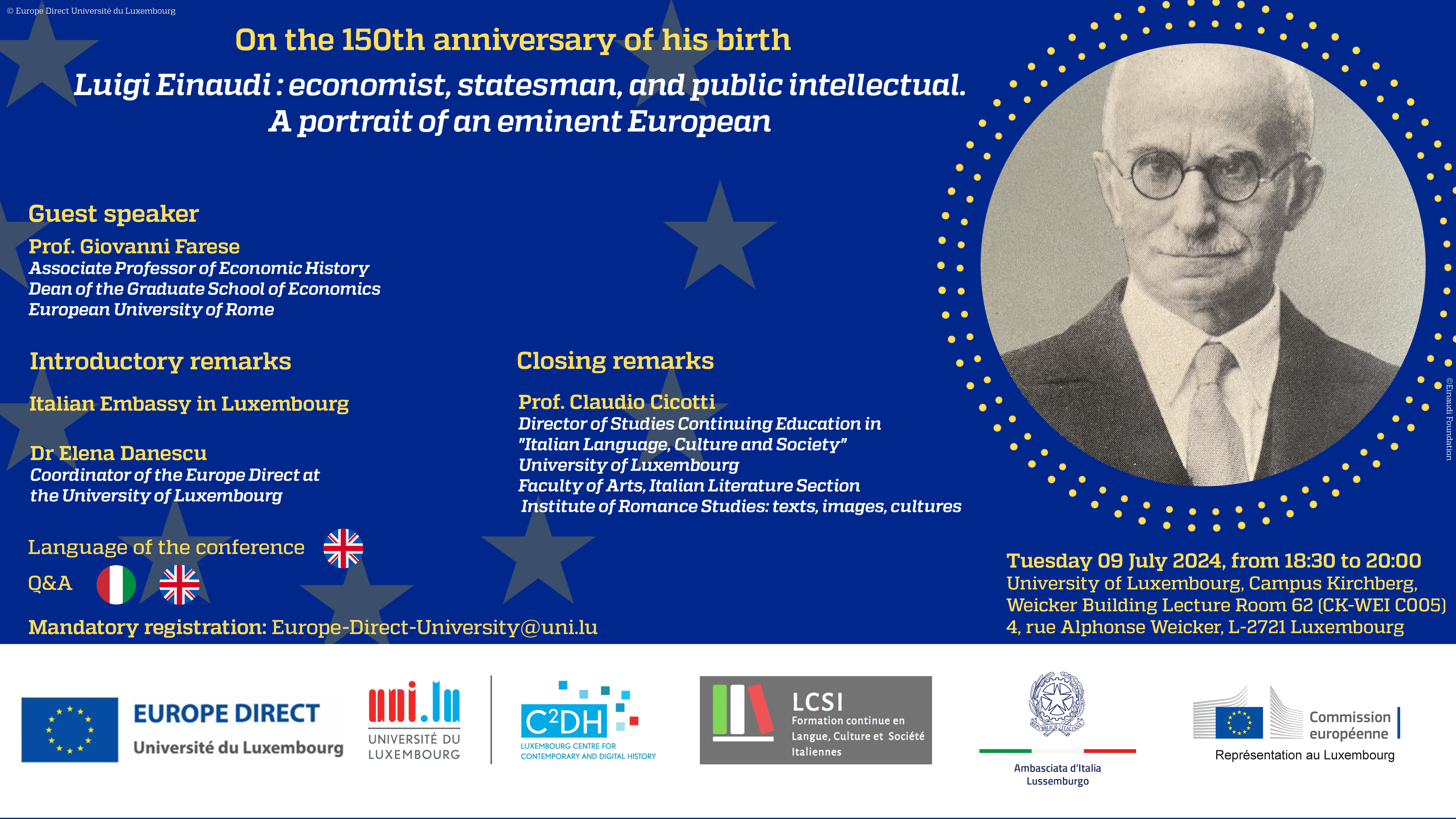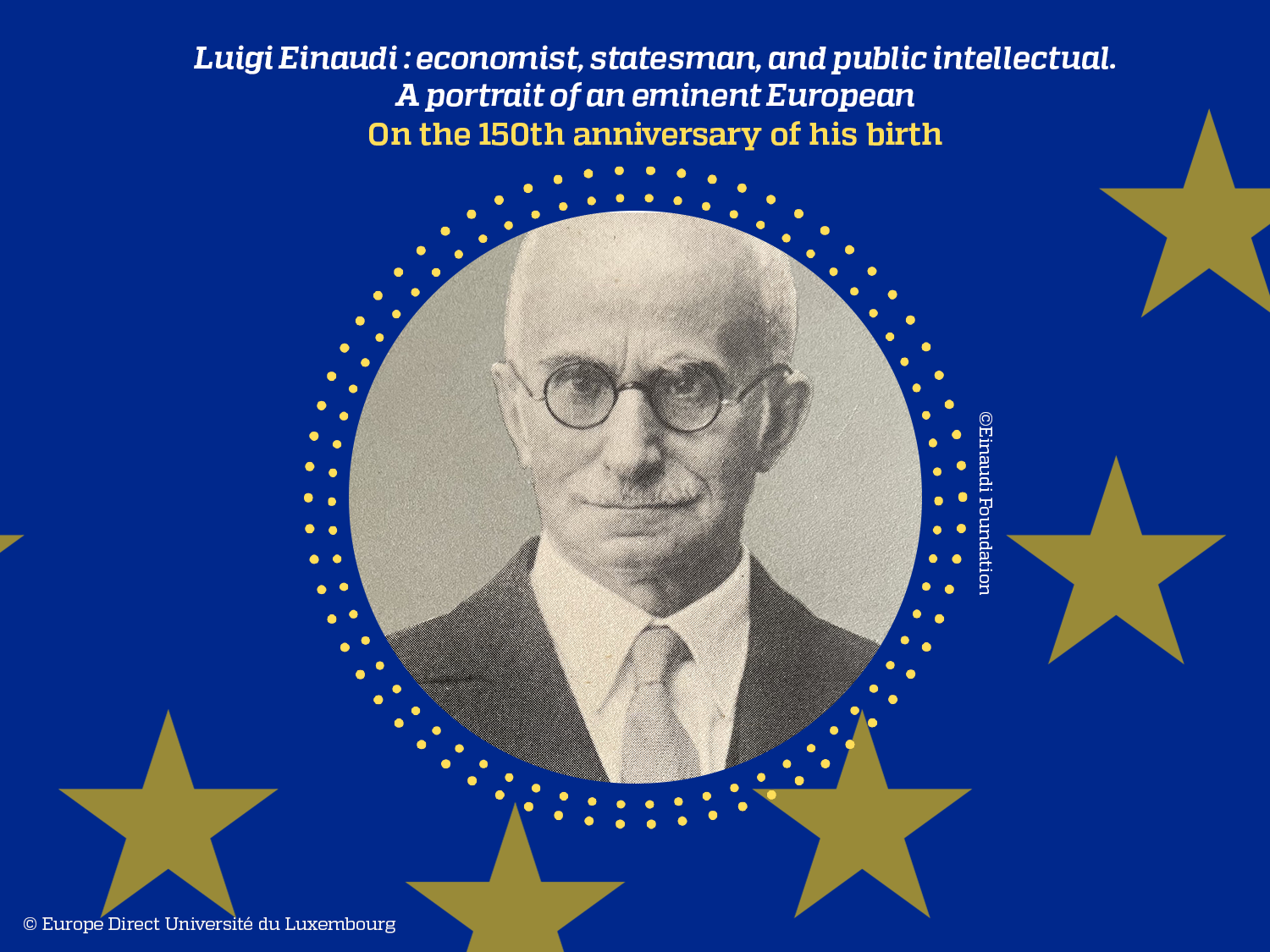On the occasion of the 150th anniversary of the birth of Luigi Einaudi (24March 1874 – 30 October 1961), Europe Direct at the University of Luxembourg (ED-UNILU), the Faculty of Arts, Italian Literature Section, the Programme Continuing Education in Italian Language, Culture and Society (LCSI), the Luxembourg Centre of Contemporary and Digital History (C²DH), the Italian Embassy in Luxembourg and the Representation of the European Commission in Luxembourg have the pleasure of inviting you to the lecture
Programme
English
English
Italian
Guest speaker
Prof. Giovanni Farese (Associate Professor of Economic History, Dean of the Graduate School of Economics, European University of Rome)
Introductory remarks
Dr Elena Danescu (Research Scientist at the Luxembourg Centre for Contemporary and Digital History Coordinator of the Europe Direct at the University of Luxembourg)
Closing remarks
Prof. Claudio Cicotti (Director of Studies Continuing Education in “Italian Language, Culture and Society” University of Luxembourg, Faculty of Arts, Italian Literature Section,Institute of Romance Studies: texts, images, cultures)
Mandatory registration at the latest 8 July 2024 at europe-direct-university@uni.lu
Abstract
On the occasion of the 150th anniversary of the birth of Luigi Einaudi, this lecture will reflect on his legacy for Europe today. Economist, professor and senator before the Second World War governor of the Bank of Italy (1945-1948) and minister of the budget (1947-1948), after the war Einaudi was also the first president of the Italian Republic (1948-1955). In these capacities he was a strong advocate of European integration: he even imagined a common currency and a central bank. The lecture will look at three points: first, Einaudi’s life and work; second, three sides of Einaudi’s personality: the liberal economist, the pragmatic statesman, and the public intellectual; third, and last, his intellectual legacy in the context of the challenges that Europe is facing today. For him, economic integration was important, but never sufficient per sé, as it should always be framed within a broad political vision. He was a father of European political economy. He insisted on the need to provide public good, such as common defence, to strenghten Europe’s position in the world.

Partners

